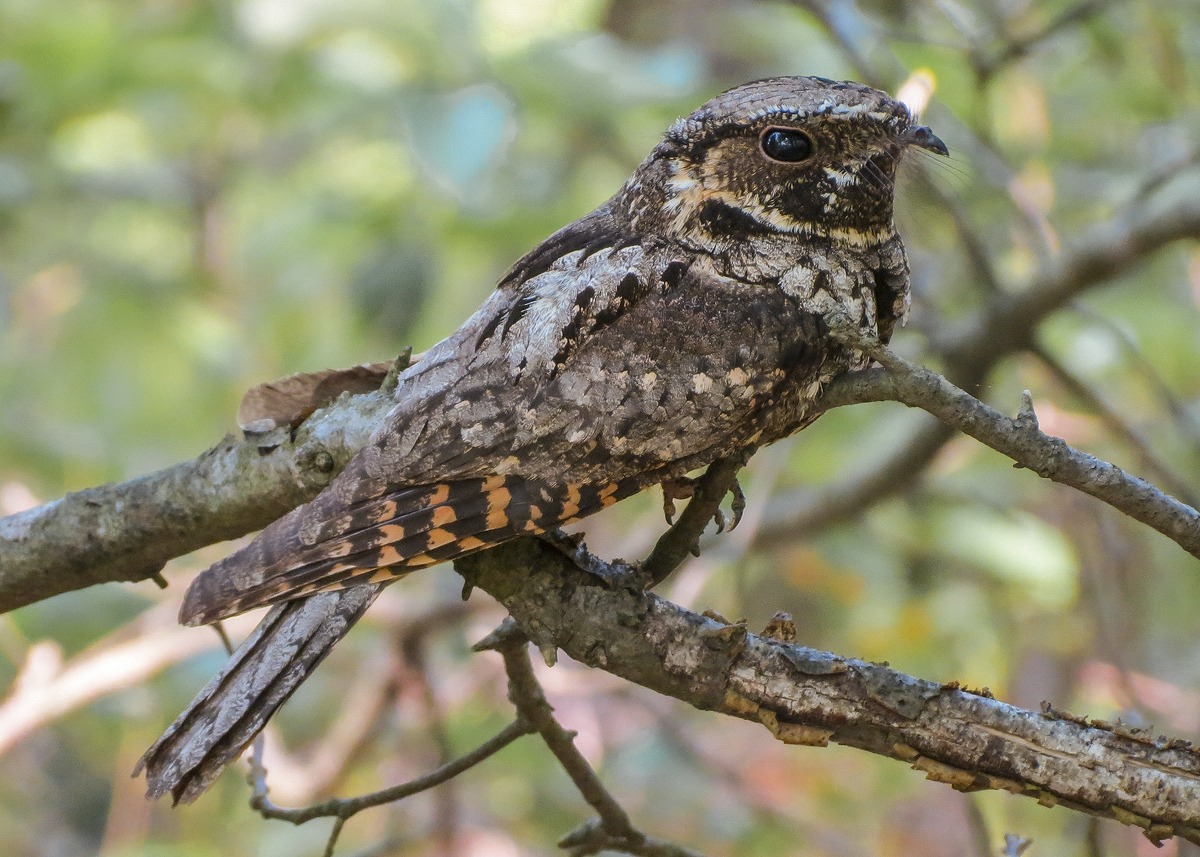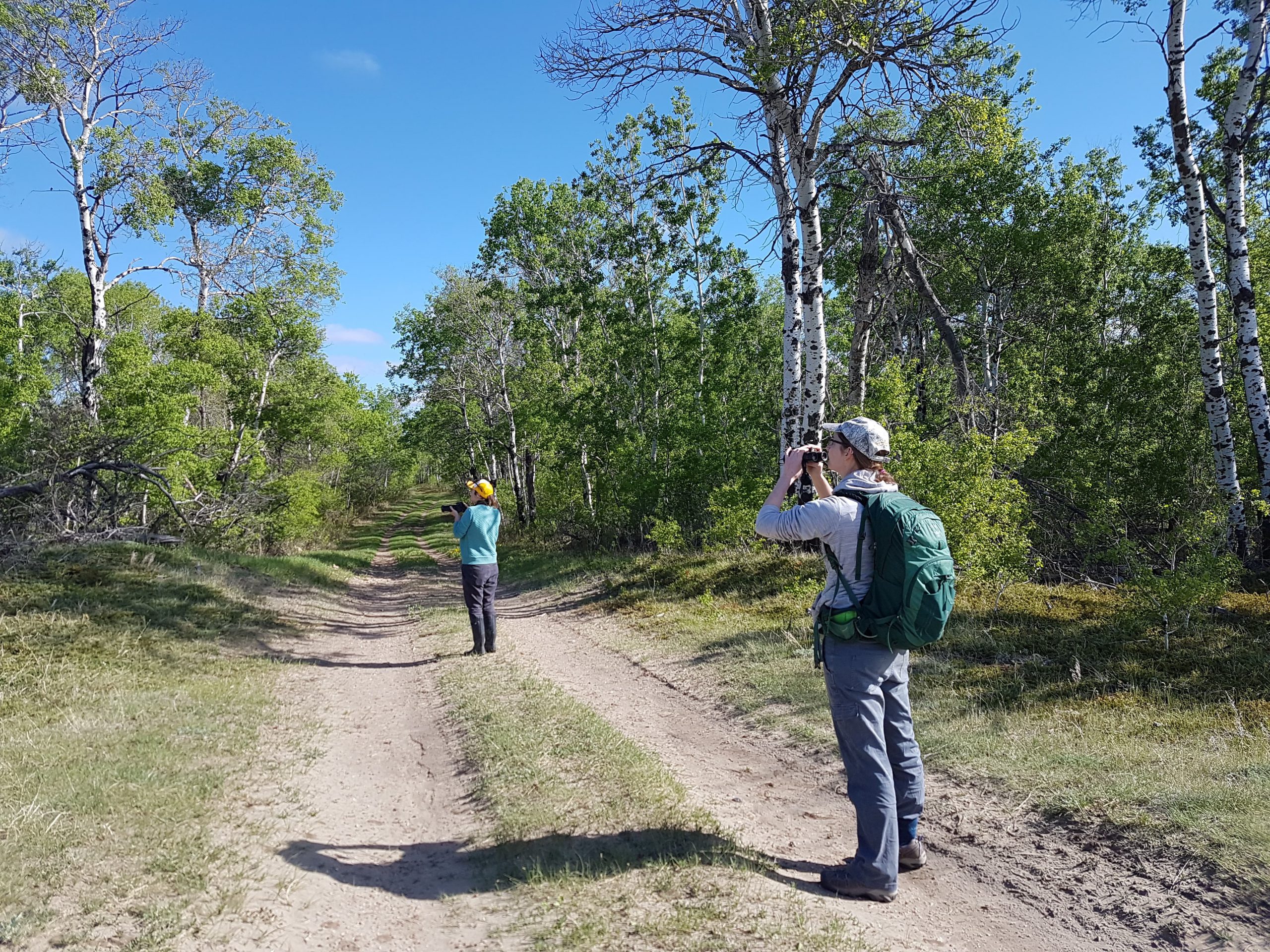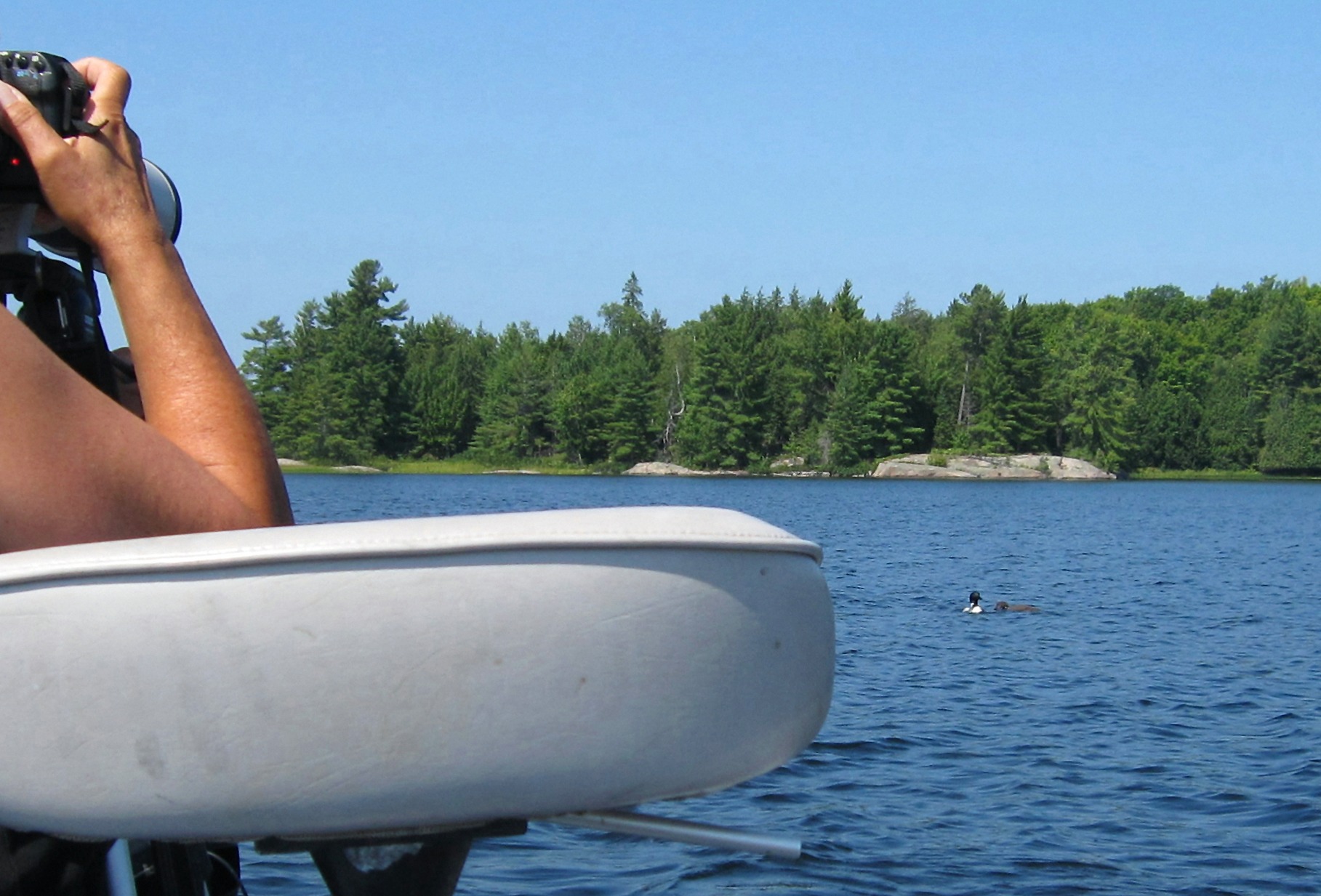Thank you for your interest in volunteering for our programs! Volunteers like you are essential to bird monitoring and conservation efforts.
Please note that for your health and safety, all volunteers are expected to follow appropriate COVID-19 protocols as outlined by their province or territory, and local public health guidelines in their area.
To explore more volunteer opportunities across Canada, check out our March listing and keep an eye on the Birds Canada blog for future announcements.
Canadian Nightjar Survey (nationwide)
Volunteer opportunity
Last year, you may have heard that Birds Canada added a new national project to its portfolio: the Canadian Nightjar Survey, which is managed in collaboration with WildResearch and supported by Environment and Climate Change Canada. This survey fills an important information gap by gathering much needed information about the three relatively little-studied nightjar species that breed regularly in Canada. Two of these, the Common Nighthawk and the Eastern Whip-poor-will, are Species at Risk and the third, the Common Poorwill, is “Data Deficient”, meaning that we currently have insufficient information to determine reliable population trends for this species in Canada.
This is an evening roadside survey that is conducted once a year between June 15 and July 15. The routes are based on North American Breeding Bird Survey routes and as there is a finite number of these, it is possible that your nearest one may not be quite on your doorstep. However, in the future, we hope to be able to add other routes. At each of the 12 stops, participants listen for nightjars for six minutes and record their findings, which are then submitted online.
In some parts of the country, several of the restrictions put in place to reduce the risk of spreading COVID-19 are slowly being loosened. However, in others, restrictions have been recently tightened again (e.g., Stay-at-Home orders and curfew). That said, with a growing proportion of the population now vaccinated, it is hoped that by June 15, these will have been loosened again. The survey can be conducted by one person or by two or more people from the same household travelling in the same car, or by two or more people from different households travelling in different cars where this is allowed. In the latter case, social distancing can be practiced during the survey, and the sharing of equipment is not required.

Eastern Whip-poor-will Photo: Ron Ridout
Is it for me?
This is a great survey for individuals at any skill level as there are only three species to focus on, and, depending on where the survey route is, a given participant will only have to know one or sometimes two of these. The fact that the Eastern Whip-poor-will (listen) and the Common Poorwill (listen) seem to sing their names makes things even easier! The survey starts half an hour before sunset and takes about two hours to complete.
Learn more and get involved
Anyone interested in the survey can learn more via the NatureCounts portal. There, even before signing up to see the available routes map, you can consult the Survey Protocol and the most recent newsletter, which can be found under the resources tab.
Route sign up, access to project materials, data entry, and data management is via the project’s NatureCounts portal: https://www.birdscanada.org/birdmon/nightjars/main.jsp. If you do not have a NatureCounts account, you simply need to click on “Sign Up” and follow the prompts. If you do have an existing account you simply need to add the project to your list.
For more information, please email Andrew Coughlan: acoughlan AT birdscanada.org.
Saskatchewan Breeding Bird Atlas
Volunteer opportunity
Volunteer birders are needed to collect breeding bird observations across Saskatchewan in 2021! As this project draws nearer to the end of its data collection phase, most priority squares are short of the minimum 12 hours of general atlassing effort, so any complete checklist will help us to reach our goals. Peak atlassing season begins May 28 and wraps up in early August.

Photo: Moriah Tanguay
Is it for me?
Volunteers who are comfortable identifying most birds they encounter and can drive outside of the city to collect complete checklists can make a big impact. But even incidental observations of common species like Canada Goose with goslings and Black-billed Magpies are needed from everywhere!
Learn more and get involved
View the online Coverage Map to see where your birding can have the most impact this summer. You can also download the new NatureCounts smartphone app on Google Play or the Apple App Store to collect and submit data from the field. Learn more about the Atlas by visiting https://sk.birdatlas.ca/ or by contacting LeeAnn Latremouille: skatlas AT birdscanada.org
Canadian Lakes Loon Survey (nationwide)
Volunteer opportunity
If you regularly visit a Canadian lake, you can be a Citizen Scientist. Canadian Lakes Loon Survey participants have worked since 1981 to track Common Loon breeding by monitoring chick hatch and survival. Participants dedicate at least three days to the survey, visiting their lake once in June (to see if loon pairs are on territory), once in July (to see if chicks hatch), and once in August (to see if chicks survive long enough to fledge).

Photo: Frank Horvath
Is it for me?
This program is great for anglers, lake lovers, and lake property owners. Anyone who revisits the same lake several times during a summer is a good fit. Being highly skilled at bird identification is NOT required, but you need to be able to differentiate the Common Loon from mergansers, cormorants, and ducks. In most situations, volunteers can conduct the survey during their regular lake-time activities – such as paddling, boating, fishing, or enjoying the shoreline. Binoculars are a must and, in most situations, a watercraft is required.
Stay-at-home orders, curfews, regional travel advisories (such as avoiding travel between different COVID-19 risk zones), or other COVID-19 restrictions in some locations may mean that doing the Survey is not possible; it is your responsibility to know, understand, and obey any guidance that applies to your situation.
Learn more and get involved
Visit www.birdscanada.org/loons for information on the Canadian Lakes Loon Survey and other ways you can help Common Loons. Potential volunteers are asked to review the Participant Factsheet and register to survey via the Volunteer Portal. For more information, please email Kathy Jones at volunteer@birdscanada.org.
